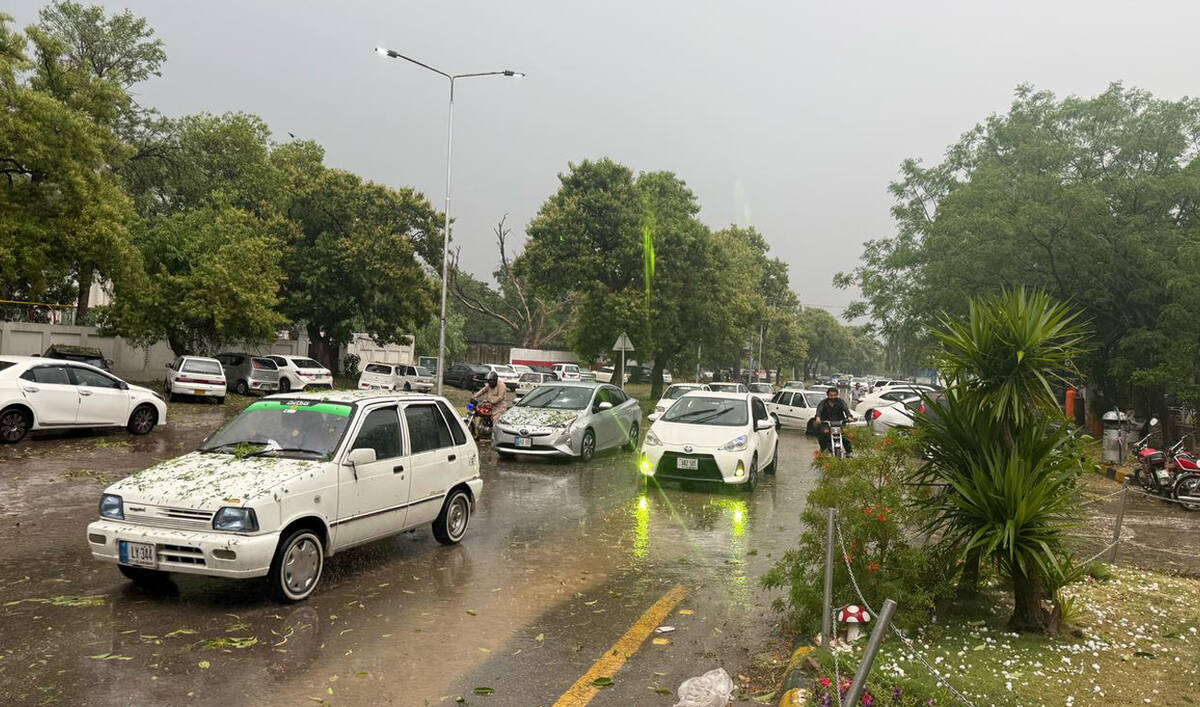KARACHI: When Pakistani artificial intelligence engineers Hammad Khan, 29, and Saad Mughal, 27, initially developed and released an AI tool, they meant to test the waters of the world of AI. Little did they know that the locally developed app would end up making a massive splash worldwide.
In layman’s terms, AI is a branch of computer science concerned with building and managing technology that can learn to make decisions and carry out actions on behalf of a human being. AIAV, developed by Khan and Mughal, residents of Pakistan’s southern port city of Karachi, helps users create personalized raps, biographies, and dating profiles all based on their social media persona.
Here’s what the tool does for you: Enter your Twitter handle and wait for the AI engine to scan all your tweets. Once it’s done rummaging through hundreds of your tweets and poring over content you posted on Twitter, AIAV produces the user’s brief biography, a personalized rap, and a dating profile.
Such was the tool’s popularity within three days of its launch that AIAV became one of the fastest generative AI products to reach more than 200,000 users from 194 countries earlier this month.
Khan and Mughal, co-founders of the tech consulting firm AlphaVenture that specializes in data and AI, said they developed the tool and launched it in the first week of April.
“I published this and went for an iftar party, and when I came back to my home, I realized that the tool has gone super, super big,” Khan, chief executive officer of AlphaVenture, told Arab News. “Because initially, I intended that maybe 1,000 people might use it or test it, but what we were seeing was astronomical as everything was crashing down.”
Khan is a graduate of the Shaheed Zulfikar Ali Bhutto Institute of Science and Technology, one of Pakistan’s leading private universities.
The AI tool performs its task by combining ChatGPT, widely regarded as the best generative large language model, with specialized technologies such as Elasticsearch and GoogleNLP. The result offers unparalleled speed, efficiency, and accuracy.
Khan said the next 72 hours after the launch were an “interesting experience” as the two founders slept less and had their hands full trying to scale the tool in accordance with its rising demand.
“Every time we would try to scale it, every time we would try to maybe build more things on it, 10,000 or 20,000 people would come in,” he said. “We were literally in awe.”
AIAV has so far reached an impressive 12 million users worldwide and clocked in over 400,000 user signups.
“Primarily, the whole idea of building this tool was to test it and maybe compete with the likes of startups in the Silicon Valley and see how far we can take it, and I think now it’s pretty well tested,” Khan said. “We have tested it with over 400,000 users. Now, I’m pretty happy with the result, but honestly, we didn’t expect this.”
The majority of the tool’s users are from the US, UK, and the Middle East. Many of them believe that its “personal nature” caused the AI program to attract people from all parts of the world.
Mughal said the duo was making modifications to AIAV so that the response generated by the context engine was more accurate. The founders are also in touch with a few venture capital funds for financing.
Buoyed by AIAV’s phenomenal success, Khan and Mughal, who live in Karachi’s middle-class Gulistan-e-Jauhar neighborhood, have their eyes set on broadening the tool’s application.
“We are now working to roll out the [upgraded version] to help people in legal, financial, and academic fields among others,” Mughal said.


















